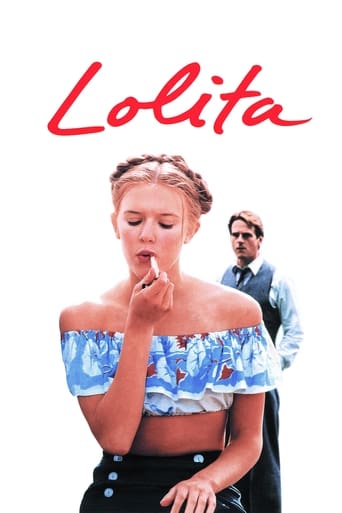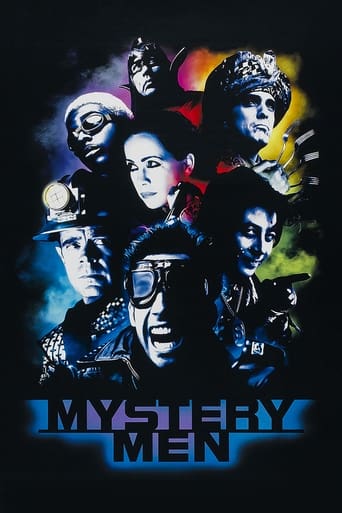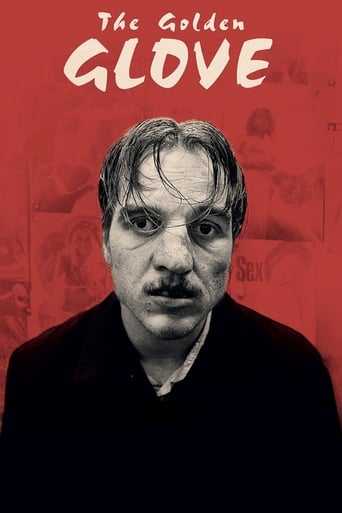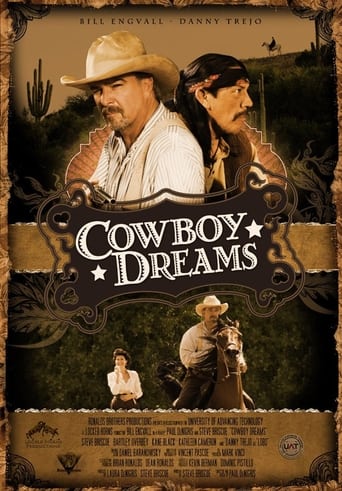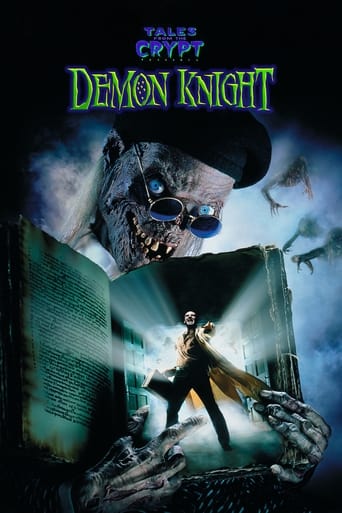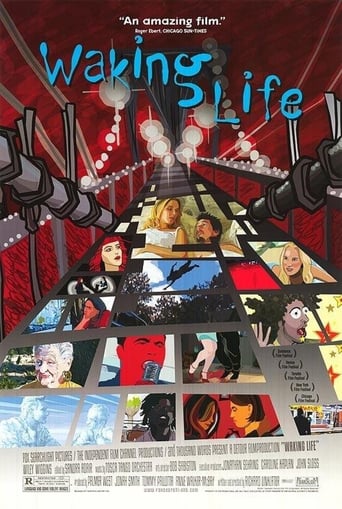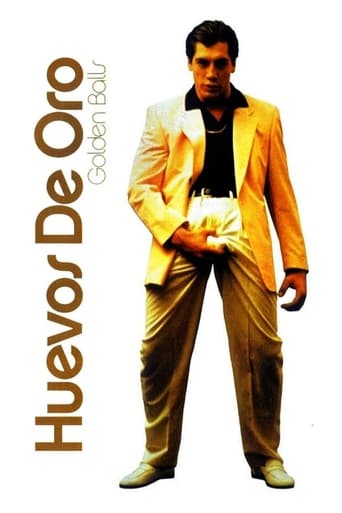
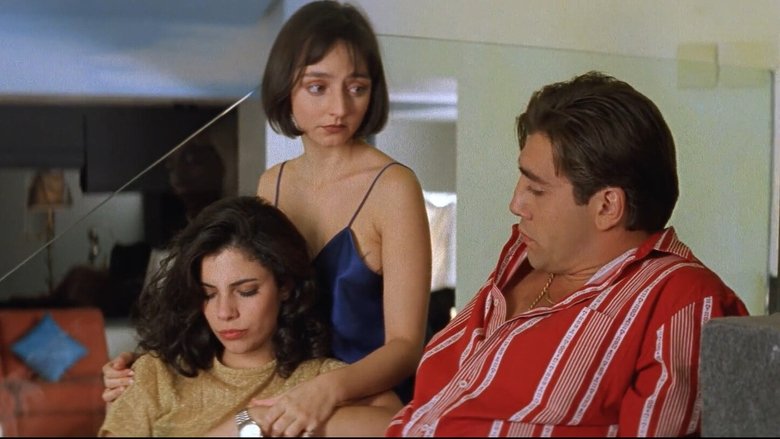
Golden Balls (1993)
Benito González is a flamboyant engineer in Melilla, with a brash and pushy personality. His dream is to build the tallest building ever in the region. After his girlfriend leaves him, he devotes himself entirely to his ambitions, deciding to let nothing get in his way. He marries the daughter of a billionaire, intending to use her father's money to realise his project. Benito waltzes his way through a career of excess, fetishes and deceptions, but the personal conflicts he unleashes ultimately send his life spiraling down to disaster.
Watch Trailer
Cast
Similar titles

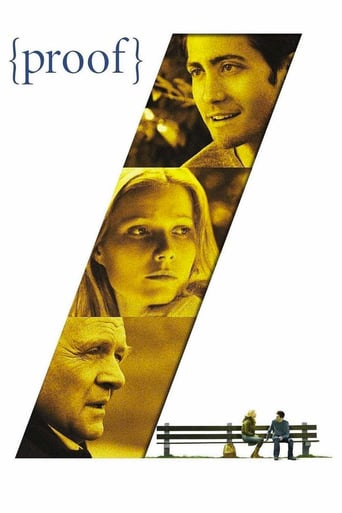
Reviews
Excellent but underrated film
The film makes a home in your brain and the only cure is to see it again.
A movie that not only functions as a solid scarefest but a razor-sharp satire.
One of the worst ways to make a cult movie is to set out to make a cult movie.
Bigas Luna's film is far from perfect, but I found it a sharp and caustic portrait of a particular lifestyle and a particular time and place in recent Spanish history - the 80's construction boom, the new rich and their unabashed cheesiness, the macho ibérico...Bardem's character is spot on, and he plays the role incredibly well. In fact, all of the performances are very good; it is the directing that occasionally fails the story. It does at times feel like the sex scenes outweigh all others, but I don't feel that they are gratuitous. Other than expensive accessories and a lust for skyscrapers, it is what Bardem's character spends most of his time and energy on. Maria de Medeiros and Maribel Verdú are excellent, especially the latter, who delivers a pretty brave performance. The cinematography is really beautiful and well conceived for each stage of the story. And it contains what must be one of my favorite cinematic moments in a long time...Bardem doing a Julio Iglesias karaoke number in a leopard-print robe, black speedo and Catalan barretina.
With some films it is really hard to tell for whom they were made. Huevos de oro seems to aim at the well educated Spanish middle class. There must be many inside jokes in this movie which you will not understand if you are an outsider. This can be pretty annoying.Symbols and references to art and popular culture abound, the movie alludes to the work of Salvador Dalí, Luis Buñuel and the Surrealists in general, a certain infatuation with bidet baths seems to point to Duchamp's ready mades. What's more, the main character has also a knack for karaoke tapes with songs of Julio Iglesias. But why all this is mixed together in a rather pretty but also gratuitous way simply eludes me. I can only guess that it all serves to highlight the vital, impetuous, boorish vulgarity of the main character who the director seems to admire and despise at the same time. How all the really pretty women run after him (the main character, I mean) is slightly disconcerting.The movie has three parts. It starts in the Spanish enclave of Melilla in Africa, where Benito, the main character, does his military service, apparently in the corps of engineers. Then it moves on to the resort town of Benidorm in Spanin where Benito just wants to build the highest skyscraper of the place and become a vulgarized Howard Roark. For the last part a defeated Benito moves to Miami, Florida, presumably in order to start a new life". But the change of places is not really explained satisfactorily. It is also somehow irritating that there is no character development and that the movie descends into a soap opera modus without being convincingly ironic. It must be said that Javier Bardem acquits himself very well playing the young stud who grows limp and deflated.I purchased this movie because I am interested in townscapes. And Benidorm is a kind of a special place, townscapewise. In this aspect Huevos de oro satisfied me only partially. In Jess Franco's She Killed In Ecstasy (1970) this specific location was used in a more rewarding way.
This is a generally enjoyable send-up of the excesses of the 1980's:- the get-rich quick, looking after no. 1 culture which prevailed for a mercifully brief period. The anti-hero is a cynical building contractor who will do anything to achieve his aim of making a fortune out of nothing, regardless of the law or of any loyalty to those closest to him. Needless to say, he gets his come-uppance and the final scene in which he smashes a lavatory to pieces is vintage Bigas Luna.Unfortunately, it doesn't quite manage to keep up the same pace as "Jamon Jamon" and, particularly after about half way through, it starts to lose its momentum and the viewer starts to lose interest. But there are one or two scenes which are so funny that they alone make the film worth seeing, e.g. the three-in-a-bed scene in which he suddenly realises that he is not the fantastic lover he had always imagined he was.
This film is Spanish. This statement is not as obvious as you might think. Bigas Luna makes films so rich in Spanish cultural references that it is true that without previous knowledge, or better yet experience, of Spain then much of the film's charm will be lost. He parodies the stereotypes of spanish culture- the macho male most obviously, but there are numerous others- in such a way that anyone who accuses the characters of being over the top and unbelievable would very nearly be fully justified, if it wasn't that they are so instantly recognizable. Javier Bardem's character has wonderfully kitsch taste, most notably his attire and the obsession he has with Salvador Dali (to the point of outlining the famous 'drawers' across the bodies of all the women in his life). This goes a long way to creating the visual style which is somehow spot on for the mediterranean coast. The story itself is quite touching in the end, as a man of great passion and ambition rises from having nothing to having all he desires before the inexorable decent commences. There is much symbolism in this film for those who enjoy it. For example Bardem aims to erect the tallest building in town, yet as it fails and crumbles, so does his sexual potency. This film is admittedly an aquired taste, not for people who thrive on the tried and tested Hollywood formulae, unless they are willing to explore into the exotic and foreign world of Bigas Luna.



